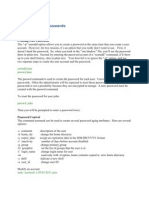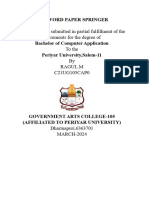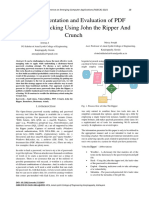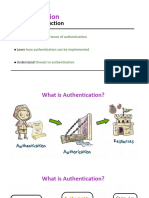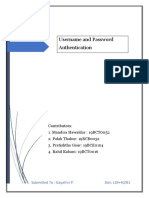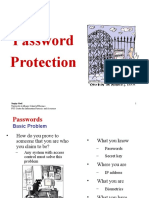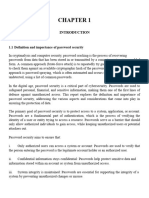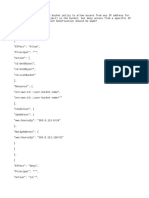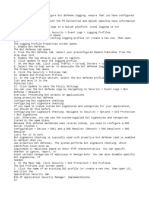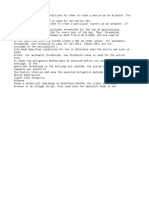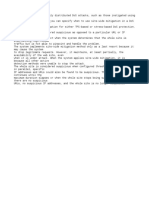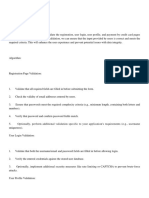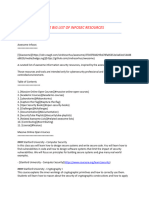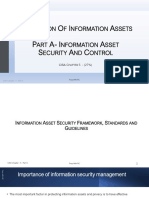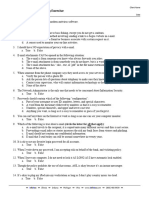0% found this document useful (0 votes)
54 views2 pagesTechskills Linuxsecurity 1 3 Auditing User Passwords
This document discusses techniques for auditing and enforcing strong user passwords in Linux. It describes how to set password policies that expire passwords after a certain number of days and warn users before expiration using chage and /etc/login.defs. It also explains how to require complex passwords using the /etc/security/pwquality.conf file and criteria like length, uppercase/lowercase letters, numbers, and special characters. Finally, it provides instructions for using John the Ripper to test password strength through a brute force attack on the hashed passwords.
Uploaded by
DDDDCopyright
© © All Rights Reserved
We take content rights seriously. If you suspect this is your content, claim it here.
Available Formats
Download as PDF, TXT or read online on Scribd
0% found this document useful (0 votes)
54 views2 pagesTechskills Linuxsecurity 1 3 Auditing User Passwords
This document discusses techniques for auditing and enforcing strong user passwords in Linux. It describes how to set password policies that expire passwords after a certain number of days and warn users before expiration using chage and /etc/login.defs. It also explains how to require complex passwords using the /etc/security/pwquality.conf file and criteria like length, uppercase/lowercase letters, numbers, and special characters. Finally, it provides instructions for using John the Ripper to test password strength through a brute force attack on the hashed passwords.
Uploaded by
DDDDCopyright
© © All Rights Reserved
We take content rights seriously. If you suspect this is your content, claim it here.
Available Formats
Download as PDF, TXT or read online on Scribd
/ 2






